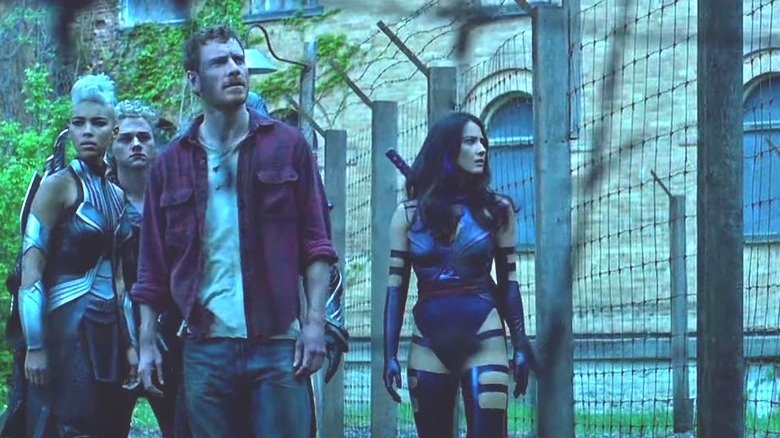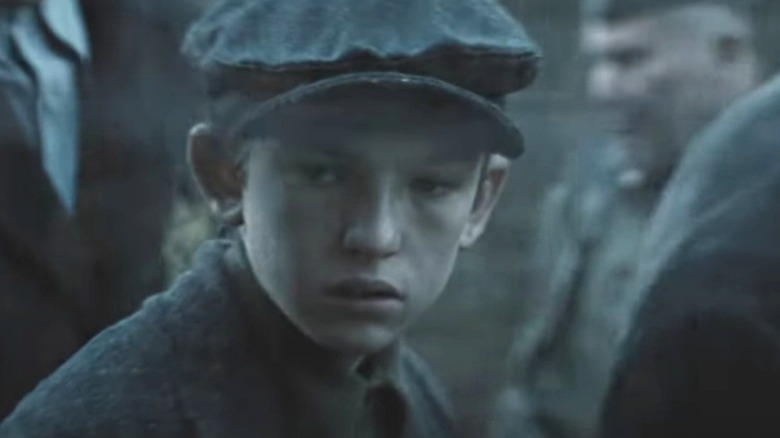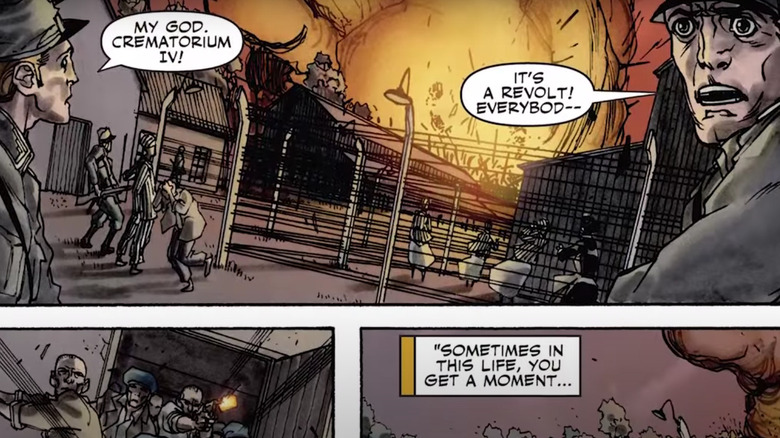The X-Men: Apocalypse Scene That Went Too Far
The "X-Men" comics have always been about outsiders. Since their first appearance nearly 60 years ago, the mutant superteam has fought off bigotry and prejudice while going above and beyond, often for people who don't really care much for them. For this reason, the "X-Men" franchise has always been a haven for those who don't feel accepted by society to some degree (via History).
Naturally, these sentiments carried over into the "X-Men" series of films as well. While Magneto (Ian McKellen/Michael Fassbender) has had a stoked rage living inside of him since his childhood persecution, other characters like Beast (Kelsey Grammar/Nicholas Hoult) and Mystique (Rebecca Romijn/Jennifer Lawrence) have struggled against all odds to fit into a world that hates them.
Though the "X-Men" stories have often been used as a metaphor for some of the worst instincts of the human race, sometimes the goofy world of comic books can feel a tad inappropriate when overlaid with sensitive real-life topics.
The Holocaust should not be taken lightly
In "X-Men: Apocalypse," the titular villain grows a team of allies as he travels the Earth after awakening from thousands of years of slumber. Among them is Magneto, aka Erik Lehnsherr, who spent some time in a concentration camp. While there, the young Lehnsherr lost everything, not the least of which was his innocence.
"X-Men Apocalypse" returns to this setting as Magneto, Psylocke (Olivia Munn), Storm (Alexandra Shipp), and Archangel (Ben Hardy) tour the facility that showcases some of the worst suffering in human history. The scene culminates in Magneto destroying the Auschwitz camp in a moment that makes the movie's handling of such a sensitive issue even more problematic.
As if it weren't already offensive enough to have these characters in their ridiculous costumes flippantly wandering through one of the most important historical sites of modern times, the notion that Magneto even has the right to take away such an important remembrance to those lost just to help bury his own trauma was inherently a poorly thought out storytelling choice (via Inverse).
Not the least of which is because the camp serves as a memorial to Erik's own lost family members, but that it helps the world to remember an atrocity carried out against those who are different, scapegoated by the rest of humanity—just like the X-Men and their fellow mutants are.
Previous X-Men movies treated the camp with more awareness
However, the "X-Men" franchise has tread similar ground before, albeit quite a bit more respectfully. Notably, the opening of the first film featured a young Erik Lehnsherr discovering his powers while being separated from his family at Auschwitz. "X-Men: First Class" re-shot this scene and extended Erik's trauma further to give him a vendetta that would drive his plot for much of that film.
One of the most important distinctions here is that we don't have characters in superhero garb wandering through such a pivotal and painful historical monument. Instead, the audience sees the horror of the camp much as it might have been during the real-life events of the Holocaust. Though Auschwitz is used for character motivation, it is done so in a way that makes sense for the character and the world of "X-Men" in both films. However, the material is handled with far more nuance in the comic books that have come to inspire and enrich the lore of the "X-Men" films.
The comics dive further into the horrors of Magneto's past
Though the character of Magneto first appeared in 1963 (via TV Tropes), it wasn't until 1981 that his tragic backstory was finally revealed for the first time (via Vulture). Though the revelation is key and helps readers to understand why Magneto has such a low opinion of humanity, it isn't until the 2008 comic "X-Men: Magneto — Testament" that the true depths of the character's traumatic childhood came to life.
In the story, Magneto, who is called Max Eisenhardt here, discovers his powers during a javelin-throwing contest rather than at the death camps of the Nazis, but the story captures far more of the horrors that scarred the young man's mind and led to his more militant position. With his powers, Max survives execution by a firing squad but is placed in Auschwitz as a result.
There he works in the crematoriums and sees firsthand the absolute worst horrors of the Nazi regime (via Bleeding Cool). Furthermore, he spots an old friend dying during his work, a friend who implores him not to ever let this happen again. Stories like this one really hammer home the atrocities of the Third Reich and how they could motivate a character like Magneto to wage war against his oppressors rather than simply taking their abuse while trying to co-exist peacefully.



